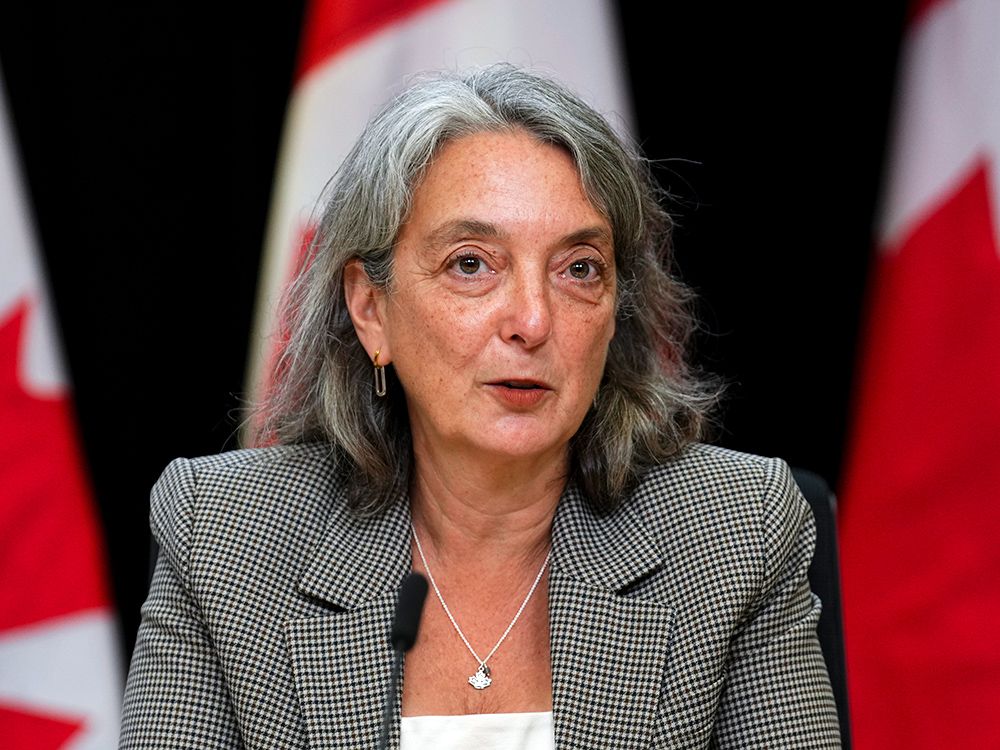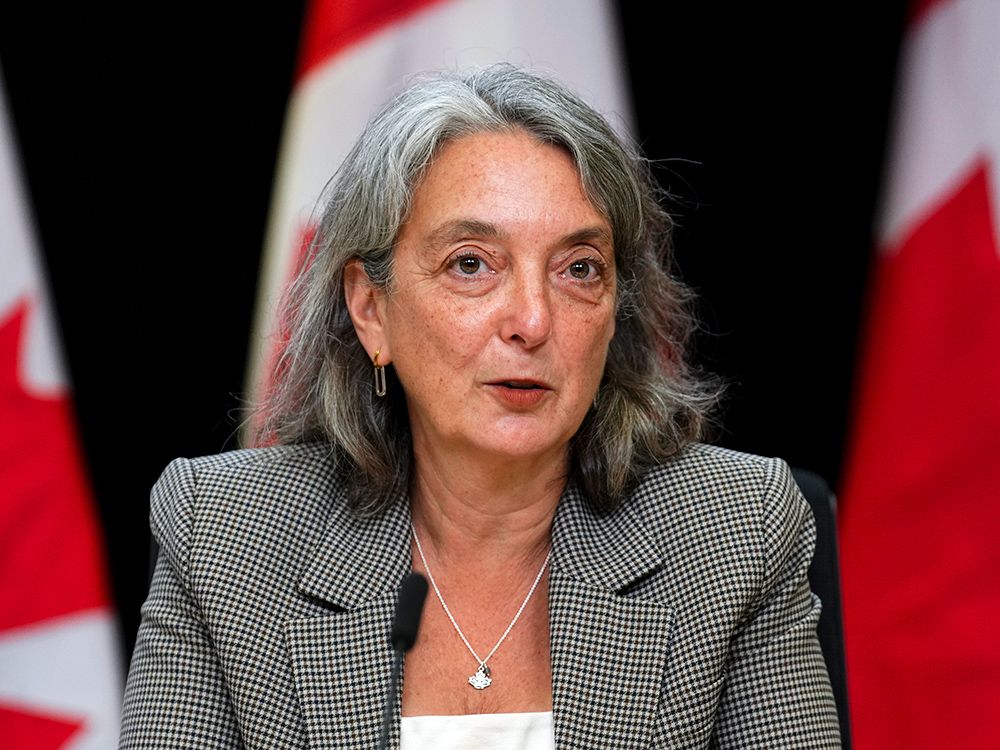
OTTAWA — Automakers calling on Ottawa to roll back its electric-vehicle mandate say their case has so far failed to sway Environment Minister Julie Dabrusin, who appears “committed” to keeping it in place.
Rising pressure over the EV issue is part of the central tension facing Prime Minister Mark Carney, which is how much to adjust the Liberals’ climate policies to address concerns coming from industry and premiers, amid a time of economic uncertainty.
Longstanding demands from the
auto industry and its associations to scrap the electric vehicle mandate
have grown louder in recent weeks, as they point to falling EV sales and struggles in the trade war with U.S. President Donald Trump, who has taken direct aim at Canada’s auto sector.
Several provincial leaders at the meeting of premiers in Huntsville, Ont., have called on Carney’s government to back off the mandate, including Ontario Premier Doug Ford, who said it should be scrapped because companies will not be able to meet the targets.
Alberta Premier Danielle Smith has also called for its removal as part of a suite of changes she wants to see to the Liberals’ federal climate policies.
Under the mandate,
which the Liberals formalized in 2023
, all new vehicle sales in Canada must be zero-emission by 2035, starting with a target of reaching 20 per cent by 2026 and then increasing to 60 per cent by 2030.
It was introduced as a way to reduce the amount of greenhouse gas emissions from the transportation sector, which, next to the oil and gas sector, is a major contributor to Canadian carbon emissions.
Since its introduction, the mandate has been challenged by a
dramatic drop in sales from 2024
, which proponents attribute to Ottawa’s decision earlier in the year to halt its purchase incentive, which it has committed to reintroduce, but with no firm timeline.
Dabrusin, whom Carney appointed to the role back in May, has been meeting with the industry to discuss the matter, given that it falls within her portfolio. It followed a sit-down the
prime minister had with the CEOs of automakers
Ford, General Motors, and Stellantis, where they discussed the ongoing trade war with the U.S.
Brian Kingston, CEO and president of the Canadian Vehicle Manufacturers’ Association, which represents the three major automakers, attended the meeting with Carney earlier in the month. The association also recently met with Dabrusin.
He says while the government recognizes there is a challenge with EV sales and meeting the current targets, what remains unclear is what it intends to do next.
“Minister Dabrusin and Environment Canada seem to be committed to having an (electric vehicle) mandate in place, and we continue to make the case to them that there are no changes that you could make to this mandate that will solve the current situation that we’re in,” he told National Post, on a call while he attended the premiers meeting in Ontario’s cottage country.
Any changes the government might consider would take time to implement, he said, adding that there was “deep frustration” within the industry as it must decide how to meet the upcoming targets, with one option being to restrict sales of internal combustion engine vehicles.
“This is urgent,” Kingston said. “This isn’t a tomorrow problem.”
Under the policy, companies could earn credits either by selling zero-emission vehicles, which include plug-in hybrids or ones powered by hydrogen, purchasing credits from another electric vehicle maker, or spending money on building out charging infrastructure.
Should they fail to meet the targets, they could face penalties under the Canadian Environmental Protection Act.
“The environment minister does not want to scrap the mandate— that was made very clear to us, and that is extremely problematic for the industry. That option cannot be off the table. It is the most effective and fastest way to address this current problem,” Kingston said.
In a statement, a spokesperson for Dabrusin said the policy was implemented to give Canadians access “to affordable zero-emission vehicles to fight climate change with Canadian innovation.”
“The standard is currently in place, and we are continuing to meaningfully engage with industry and explore flexibility to make sure that our measures reflect (the) times we are in,” spokesperson Jenna Ghassabeh wrote.
Flavio Vlope, president of the
Association of Automotive Component Manufac
turers, who was also at the premiers’ gathering, said he had spoken to around half a dozen ministers regarding the mandate and that the government was consulting “heavily” with industry.
With the environment minister not appearing to entertain the question of scrapping the targets, he said the “pressure is on” Dabrusin’s department to make them “mean something.”
“Because right now, all they mean is a setup for failure,” he said.
“There are lots of ways to help the industry here move along the immutable march to electrification, but as currently configured, all it does is punish them, and nobody needs religion right now.”
He added that any change to the mandate would ultimately need Carney’s approval.
“The prime minister is a student of math, and this should be a very easy case to make,” Volpe said. “Ministers, including the minister responsible, are more in the weeds with other stakeholders.”
“The challenge for them is to make a distinction between which stakeholders employ Canadians in sustainable jobs and which ones are just fans of (electric vehicles).”
Earlier this month, Clean Energy Canada, a climate policy program based out of Simon Fraser University,
released a statement, defending the policy
as being meant for consumers and not industry.
It said that any adjustments the government may consider making should be to “near-term” targets of the policy, while keeping the overall goal, and be coupled with an incentive package to help more Canadians afford these vehicles.
Tim Reuss, president of the Canadian Automobile Dealers Association, said there is no “one-size-fits-all” approach that would work when it comes to a mandate, and was encouraged by what he says was “considerable progress” in getting Carney and the Prime Minister’s Office to understand the position of the industry.
“There’s an understanding that something needs to be changed,” he said.
“However, that message does not seem to have fully reached the (environment) minister just yet, because there is still a sense of, ‘no we have to meet our zero-emission target goals’.”
National Post
staylor@postmedia.com
Our website is the place for the latest breaking news, exclusive scoops, longreads and provocative commentary. Please bookmark nationalpost.com and sign up for our politics newsletter, First Reading, here.
